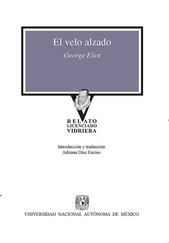George Eliot - Felix Holt, the Radical
Здесь есть возможность читать онлайн «George Eliot - Felix Holt, the Radical» — ознакомительный отрывок электронной книги совершенно бесплатно, а после прочтения отрывка купить полную версию. В некоторых случаях можно слушать аудио, скачать через торрент в формате fb2 и присутствует краткое содержание. Жанр: foreign_antique, foreign_prose, на английском языке. Описание произведения, (предисловие) а так же отзывы посетителей доступны на портале библиотеки ЛибКат.
- Название:Felix Holt, the Radical
- Автор:
- Жанр:
- Год:неизвестен
- ISBN:нет данных
- Рейтинг книги:3 / 5. Голосов: 1
-
Избранное:Добавить в избранное
- Отзывы:
-
Ваша оценка:
- 60
- 1
- 2
- 3
- 4
- 5
Felix Holt, the Radical: краткое содержание, описание и аннотация
Предлагаем к чтению аннотацию, описание, краткое содержание или предисловие (зависит от того, что написал сам автор книги «Felix Holt, the Radical»). Если вы не нашли необходимую информацию о книге — напишите в комментариях, мы постараемся отыскать её.
Felix Holt, the Radical — читать онлайн ознакомительный отрывок
Ниже представлен текст книги, разбитый по страницам. Система сохранения места последней прочитанной страницы, позволяет с удобством читать онлайн бесплатно книгу «Felix Holt, the Radical», без необходимости каждый раз заново искать на чём Вы остановились. Поставьте закладку, и сможете в любой момент перейти на страницу, на которой закончили чтение.
Интервал:
Закладка:
"A peacock!" thought Felix. "I should like to come and scold her every day, and make her cry and cut her fine hair off."
Felix rose to go, and said, "I will not take up any more of your valuable time, Mr. Lyon. I know that you have not many spare evenings."
"That is true, my young friend; for I now go to Sproxton one evening in the week. I do not despair that we may some day need a chapel there, though the hearers do not multiply save among the women, and there is no work as yet begun among the miners themselves. I shall be glad of your company in my walk thither to-morrow at five o'clock, if you would like to see how that population has grown of late years."
"Oh, I've been to Sproxton already several times. I had a congregation of my own there last Sunday evening."
"What! do you preach?" said Mr. Lyon, with brightened glance.
"Not exactly. I went to the ale-house."
Mr. Lyon started. "I trust you are putting a riddle to me, young man, even as Samson did to his companions. From what you said but lately, it cannot be that you are given to tippling and to taverns."
"Oh, I don't drink much. I order a pint of beer, and I get into talk with the fellows over their pots and pipes. Somebody must take a little knowledge and common-sense to them in this way, else how are they to get it? I go for educating the non-electors, so I put myself in the way of my pupils – my academy is the beer-house. I'll walk with you to-morrow with pleasure."
"Do so, do so," said Mr. Lyon, shaking hands with his odd acquaintance. "We shall understand each other better by-and-by, I doubt not."
"I wish you good-evening, Miss Lyon."
Esther bowed very slightly, without speaking.
"That is a singular young man, Esther," said the minister, walking about after Felix was gone. "I discern in him a love for whatsoever things are honest and true, which I would fain believe to be an earnest of further endowment with the wisdom that is from on high. It is true that, as the traveller in the desert is often lured, by a false vision of water and freshness, to turn aside from the track which leads to the tried and established fountains, so the Evil One will take advantage of a natural yearning toward the better, to delude the soul with a self-flattering belief in a visionary virtue, higher than the ordinary fruits of the Spirit. But I trust it is not so here. I feel a great enlargement in this young man's presence, notwithstanding a certain license in his language, which I shall use my efforts to correct."
"I think he is very coarse and rude," said Esther, with a touch of temper in her voice. "But he speaks better English than most of our visitors. What is his occupation?"
"Watch and clock making, by which, together with a little teaching, as I understand, he hopes to maintain his mother, not thinking it right that he should live by the sale of medicines whose virtues he distrusts. It is no common scruple."
"Dear me," said Esther, "I thought he was something higher than that." She was disappointed.
Felix, on his side, as he strolled out in the evening air, said to himself: "Now by what fine meshes of circumstance did that queer devout old man, with his awful creed, which makes this world a vestibule with double doors to hell, and a narrow stair on one side whereby the thinner sort may mount to heaven – by what subtle play of flesh and spirit did he come to have a daughter so little in his own likeness? Married foolishly, I suppose. I'll never marry, though I should have to live on raw turnips to subdue my flesh. I'll never look back and say, 'I had a fine purpose once – I meant to keep my hands clean and my soul upright, and to look truth in the face; but pray excuse me, I have a wife and children – I must lie and simper a little, else they'll starve'; or 'My wife is nice, she must have her bread well buttered, and her feelings will be hurt if she is not thought genteel.' That is the lot Miss Esther is preparing for some man or other. I could grind my teeth at such self-satisfied minxes, who think they can tell everybody what is the correct thing, and the utmost stretch of their ideas will not place them on a level with the intelligent fleas. I should like to see if she could be made ashamed of herself."
CHAPTER VI
Though she be dead, yet let me think she lives,
And feed my mind, that dies for want of her.
Hardly any one in Treby who thought at all of Mr. Lyon and his daughter had not felt the same sort of wonder about Esther as Felix felt. She was not much liked by her father's church and congregation. The less serious observed that she had too many airs and graces and held her head much too high; the stricter sort feared greatly that Mr. Lyon had not been sufficiently careful in placing his daughter among God-fearing people, and that, being led astray by the melancholy vanity of giving her exceptional accomplishments, he had sent her to a French school, and allowed her to take situations where she had contracted notions not only above her own rank, but of too worldly a kind to be safe in any rank. But no one knew what sort of woman her mother had been, for Mr. Lyon never spoke of his past domesticities. When he was chosen as pastor at Treby in 1825, it was understood that he had been a widower many years, and he had no companion but the tearful and much-exercised Lyddy, his daughter being still at school. It was only two years ago that Esther had come home to live permanently with her father, and take pupils in the town. Within that time she had excited a passion in two young Dissenting breasts that were clad in the best style of Treby waistcoat – a garment which at that period displayed much design both in the stuff and the wearer; and she had secured an astonished admiration of her cleverness from the girls of various ages who were her pupils; indeed, her knowledge of French was generally held to give a distinction to Treby itself as compared with other market-towns. But she had won little regard of any other kind. Wise Dissenting matrons were divided between fear lest their sons should want to marry her and resentment that she should treat those "undeniable" young men with a distant scorn which was hardly to be tolerated in a minister's daughter; not only because that parentage appeared to entail an obligation to show an exceptional degree of Christian humility, but because, looked at from a secular point of view, a poor minister must be below the substantial householders who keep him. For at that time the preacher who was paid under the Voluntary system was regarded by his flock with feelings not less mixed than the spiritual person who still took his tithe-pig or his modus . His gifts were admired, and tears were shed under best bonnets at his sermons; but the weaker tea was thought good enough for him; and even when he went to preach a charity sermon in a strange town, he was treated with home-made wine and the smaller bedroom. As the good Churchman's reverence was often mixed with growling, and was apt to be given chiefly to an abstract parson who was what a parson ought to be, so the good Dissenter sometimes mixed his approval of ministerial gifts with considerable criticism and cheapening of the human vessel which contained those treasures. Mrs. Muscat and Mrs. Nuttwood applied the principle of Christian equality by remarking that Mr. Lyon had his oddities, and that he ought not to allow his daughter to indulge in such unbecoming expenditure on her gloves, shoes, and hosiery, even if she did pay for them out of her earnings. As for the Church people who engaged Miss Lyon to give lessons in their families, their imaginations were altogether prostrated by the incongruity between accomplishments and Dissent, between weekly prayer-meetings and a conversance with so lively and altogether worldly a language as the French. Esther's own mind was not free from a sense of irreconcilableness between the objects of her taste and the conditions of her lot. She knew that Dissenters were looked down upon by those whom she regarded as the most refined classes; her favorite companions, both in France and at an English school where she had been a junior teacher, had thought it quite ridiculous to have a father who was a Dissenting preacher; and when an ardently admiring school-fellow induced her parents to take Esther as a governess to the younger children, all her native tendencies toward luxury, fastidiousness, and scorn of mock gentility, were strengthened by witnessing the habits of a well-born and wealthy family. Yet the position of servitude was irksome to her, and she was glad at last to live at home with her father, for though, throughout her girlhood, she had wished to avoid this lot, a little experience had taught her to prefer its comparative independence. But she was not contented with her life; she seemed to herself to be surrounded with ignoble, uninteresting conditions, from which there was no issue; for even if she had been unamiable enough to give her father pain deliberately, it would have been no satisfaction to her to go to Treby church, and visibly turn her back on Dissent. It was not religious differences, but social differences, that Esther was concerned about, and her ambitious taste would have been no more gratified in the society of the Waces than in that of the Muscats. The Waces spoke imperfect English and played whist; the Muscats spoke the same dialect and took in the "Evangelical Magazine." Esther liked neither of these amusements. She had one of those exceptional organizations which are quick and sensitive without being in the least morbid; she was alive to the finest shades of manner, to the nicest distinctions of tone and accent; she had a little code of her own about scents and colors, textures and behavior, by which she secretly condemned or sanctioned all things and persons. And she was well satisfied with herself for her fastidious taste, never doubting that hers was the highest standard. She was proud that the best-born and handsomest girls at school had always said that she might be taken for a born lady. Her own pretty instep, clad in a silk stocking, her little heel, just rising from a kid slipper, her irreproachable nails and delicate wrist, were the objects of delighted consciousness to her; and she felt that it was her superiority which made her unable to use without disgust any but the finest cambric handkerchiefs and freshest gloves. Her money all went in the gratification of these nice tastes, and she saved nothing from her earnings. I can not say that she had pangs of conscience on this score; for she felt sure that she was generous: she hated all meanness, would empty her purse impulsively on some sudden appeal to her pity, and if she found out that her father had a want, she would supply it with some pretty device of a surprise. But then the good man so seldom had a want – except the perpetual desire, which she could never gratify, of seeing her under convictions, and fit to become a member of the church.
Читать дальшеИнтервал:
Закладка:
Похожие книги на «Felix Holt, the Radical»
Представляем Вашему вниманию похожие книги на «Felix Holt, the Radical» списком для выбора. Мы отобрали схожую по названию и смыслу литературу в надежде предоставить читателям больше вариантов отыскать новые, интересные, ещё непрочитанные произведения.
Обсуждение, отзывы о книге «Felix Holt, the Radical» и просто собственные мнения читателей. Оставьте ваши комментарии, напишите, что Вы думаете о произведении, его смысле или главных героях. Укажите что конкретно понравилось, а что нет, и почему Вы так считаете.












